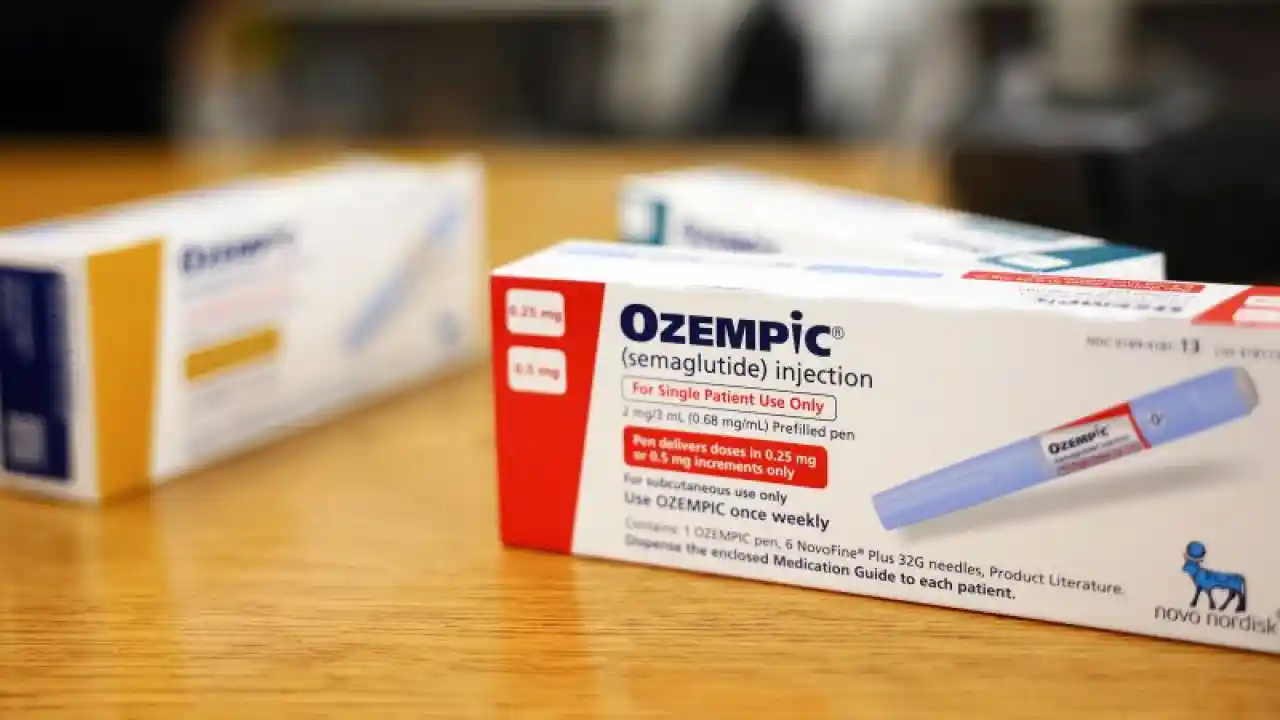Study Suggests Higher Risk of Blindness with Ozempic and Wegovy Use
People who take Ozempic or Wegovy may have a higher risk of developing a rare form of blindness, a new study suggests. Still, doctors say it shouldn't deter patients from using the medicines to treat diabetes or obesity. Last summer, doctors at Mass Eye and Ear noticed an unusually high number of patients with non-arteritic anterior ischemic optic neuropathy, or NAION, a type of eye stroke that causes sudden, painless vision loss in one eye. The condition is relatively rare -- up to 10 out of 100,000 people in the general population may experience it -- but the doctors noted three cases in one week, and each of those patients was taking semaglutide medications.
A look back at six years of medical records showed that people with diabetes were more than four times more likely to be diagnosed with NAION if they were taking a prescription semaglutide, and those who were overweight or obese were more than seven times more likely to experience the condition if they were taking the medication. The risk was found to be greatest within the first year of receiving a prescription for semaglutide. The study, published Wednesday in the medical journal JAMA Ophthalmology, cannot prove that semaglutide medications cause NAION. Novo Nordisk, the manufacturer of the only semaglutide medications in the US, emphasized that the data in the new study is not sufficient to establish a causal association between the use of semaglutide medications and NAION. Semaglutide prescriptions have soared in the US, which could raise the number of people at risk for a potential side effect.
And NAION is the second-leading cause of optic nerve blindness after glaucoma. But even with an increased risk, the condition remains relatively uncommon. Experts agree that the potential risk of NAION should not deter the use of semaglutide medications to treat diabetes or obesity. The ways that semaglutides interact with the eyes are not entirely understood. The condition causes damage to the optic nerve, but there is often no warning before vision loss.
Changes in blood sugar levels can affect the shape of an eye's lens and may affect vision. The US Food and Drug Administration-approved labels for both Ozempic and Wegovy include vision changes among potential side effects. While there is a 'biologically plausible mechanism' for a potential interaction, 'association is not causation' and diabetes mellitus is a known risk factor for NAION. For now, patients who are taking semaglutide or considering treatment should discuss the risks and benefits with their doctors, especially those who have other known optic nerve problems such as glaucoma or preexisting visual loss. It is important to consult with ophthalmology if patients experience visual changes.
It is important to make sure patients are consulting with physicians who are also comfortable prescribing semaglutide and talking through what may be clinically relevant versus irrelevant, and discussing benefits versus risks of long-term therapy.

https://edition.cnn.com/2024/07/03/health/ozempic-wegovy-blindness-rare-risk/index.html
 NewsBOT
NewsBOT












